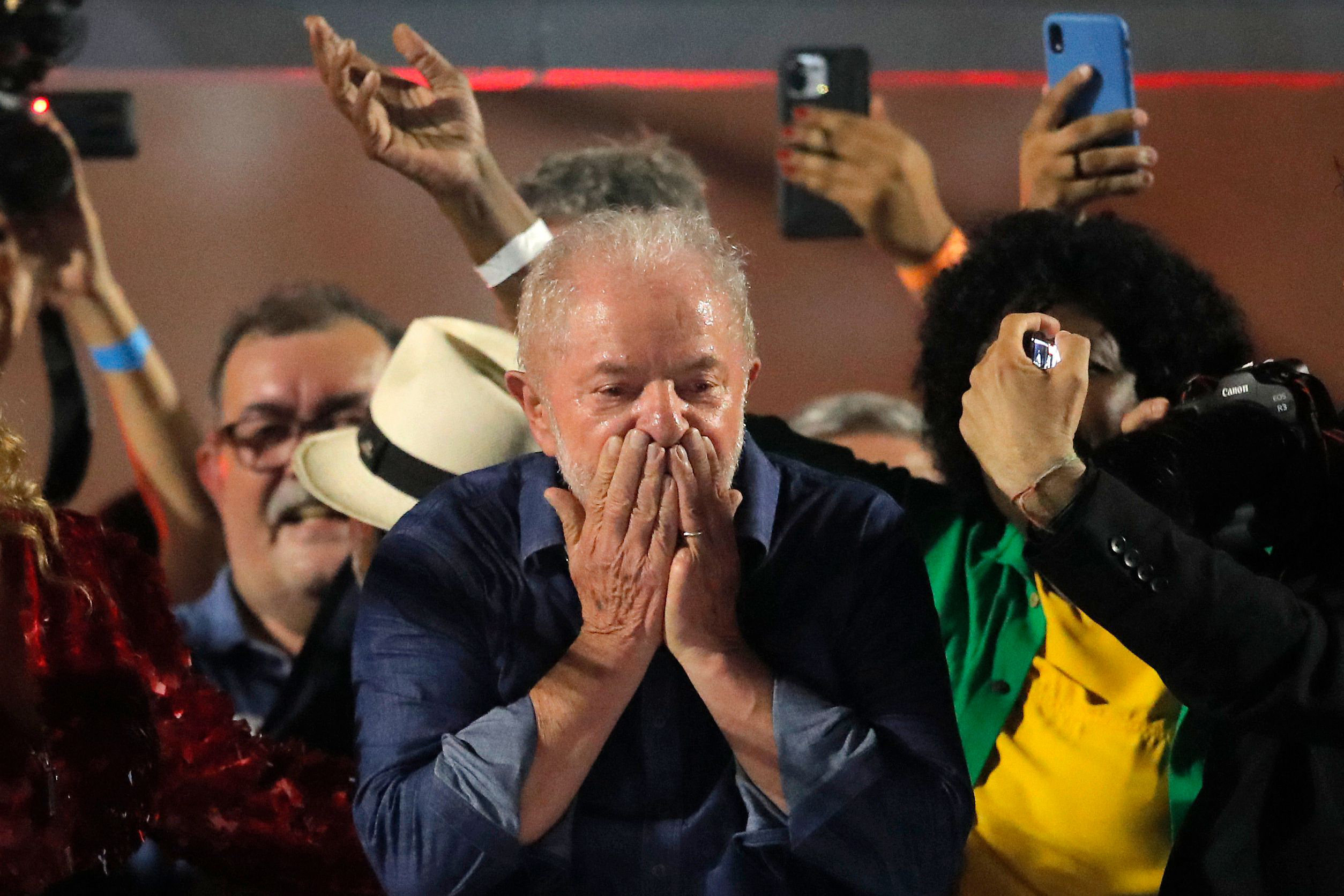Brazil's elections are over but the fight is just beginning: Analysis
There was simmering anticipation among the thousands that had gathered Sunday night on Paulista Avenue. A sea of people were there wearing the traditional red color of their chosen candidate, former President Luiz Inacio ‘Lula’ da Silva.
They sang and cheered and danced as the final votes were tallied, chanting "Fora Bolsonaro," or "Get out Bolsonaro," which was the mantra for the opposition against President Jair Bolsonaro, seeking another term after four controversial years in office.
At 7:57 p.m., the crowd erupted. Brazil’s election authority had formally called the race for Lula.
As fireworks exploded overhead, in the midst of the jubilation, one could almost forget that for nearly half of Brazilian voters, there would be no celebration.
Jair Bolsonaro received 49.1% of the vote. Lula won 50.9%.

The 1.8 points separating them is the closest margin of victory for any candidate since the return of democracy to the country in 1985, following two decades of military rule.
Bolsonaro had still not conceded the race as of the publication of this article.
"Nothing is finished," an official close to Bolsonaro told ABC News. "We have evidence there was massive fraud and we will dispute the results."
Throughout the campaign, Bolsonaro has made clear what he might do in a potential loss.
He has consistently disputed the security of Brazil’s all-digital voting system, saying the machines are vulnerable to hacking and manipulation.

He has provided no evidence to support those claims. Both national and international experts said the claims are baseless.
"This is the first time in the history of Brazil that a president is not recognizing the official results of democratic elections," political expert Paulo Ramirez, a professor at the Higher School of Advertising and Marketing in São Paulo, told ABC News. "Bolsonaro’s silence is very dangerous because he is giving room for his radical supporters to take action."
Bolsonaro has millions of passionate supporters who will likely not recognize the results of this election.
"We have irrefutable evidence of fraud," Eduardo dos Santos, an ardent Bolsonaro supporter, told ABC News. "Nothing is over until January 2023. We are waiting for our president to speak. We will do what he tells us."
Lula is set to take over the presidency on Jan. 1 next year. How Bolsonaro will stop that from happening, should he want to, remains unclear.

Many key Bolsonaro allies in the public sphere, from the new governor of Brazil’s most populous state, São Paulo, to the president of Brazil’s Chamber of Deputies, to prominent televangelists, have said the election is over and that they will respect the vote.
World leaders from President Joe Biden to Chinese President Xi Jinping all swiftly recognized Lula as the new president.
Still, some believe Bolsonaro, who some call the "Trump of the Tropics," won’t ever concede and will follow the recent playbook of a certain political ally to keep his political movement alive.
"Bolsonaro is a twin of [former U.S. President Donald Trump]. He will do whatever Trump did. Trump did not recognize the results and Bolsonaro is doing the same thing with the same consequences," Ramirez said.
For his part, President-elect Lula spoke to supporters at a victory party in a packed hotel ballroom in São Paulo on Sunday night.
"I will govern for 215 million Brazilians and not just those who voted for me," said the 77-year-old, his voice hoarse after months of campaigning. "Two Brazils do not exist. We are one country, one people and a great nation."
They were magnanimous words that will likely fall on deaf ears for millions of Bolsonaro supporters.
Brazil’s elections might be over, but the fight to govern is just beginning in this deeply divided country.





